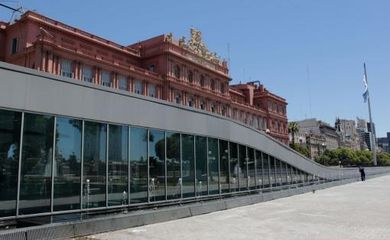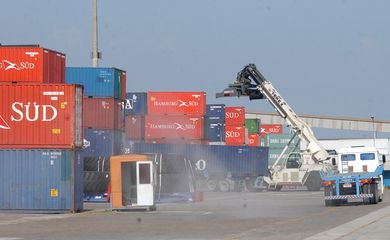Brazilian businesses want trade deals with US, EU

The United States and the European Union are considered the most attractive partners for trade deals by a majority of Brazilian exporters, the National Confederation of Industry (CNI) revealed in its survey “Desafios à Competitividade das Exportações Brasileiras” (“Brazilian Exporters’ Competitive Challenges”). The survey heard 847 small, medium and large businesses in the five Brazilian regions.

Asked which countries they would like to sign trade agreements with, 23.9% of the surveyed businesses mentioned the United States, 6.8% said China, 3.7% picked Mexico, and 3% named Argentina. When it comes to economic blocs, 16.1% chose the European Union, 3.9% picked MERCOSUR, and 2.8% said NAFTA.
Trade consultant Welber Barral explains that while MERCOSUR is an important bloc, it is also perceived to be problematical. “There’s a lot of criticism about MERCOSUR, and in fact it is experiencing a bad period. It is sluggish to make decisions, but it’s the leading buyer of Brazil’s manufactured goods,” he said.
MERCOSUR has been left without a leader since the end of July as Uruguay stepped down from the pro tempore presidency. Venezuela was supposed to take over, but Brazil, Argentina and Paraguay objected claiming it had failed to meet certain requirements and standards and adhere to the human rights protocol.
Barral points out that Argentina is the most appealing market for Brazil within MERCOSUR. “Brazil’s primary trade partners are the US, China, and Argentina. Exports to China are mostly basic goods. With the US exports are more diverse with 40% of manufactured goods. As for Argentina, manufacture products account for more than 80% of Brazil’s exports,” he said.
But business relations between Brazil and Argentina have their shortcomings as well, mostly due to non-tariff barriers in Argentina. “Argentina imposes a number of red tape barriers, but this has improved under President Macri,” Barral said. Last week, Brazil’s and Argentina’s governments signed agreements to facilitate bilateral trade and cut red tape.
According to Barral, Brazil is at a disadvantage when it comes to the global scene because its trade agreements are too limited. “We have agreements in place with Peru, but they’re focused on tariff preferences rather than free trade. So Peru ended up signing more comprehensive agreements with the United States, Japan, and Australia,” he explained, noting this has been detrimental for Brazil.
MERCOSUR and the EU resumed talks for a free trade agreement in May, and have discussed lists of products they are willing to cut taxes from. “This is an extremely important agreement not only for MERCOSUR but for Europe as well. But it’s also a complex one and will probably take a few years to complete,” Barral said.
Businesses heard by the survey pointed out the main competitive setbacks for Brazil’s exports—transport costs, port and airport charges, and government inefficiency overcoming export barriers.
Translated by Mayra Borges
Fonte: Brazilian businesses want trade deals with US, EU



